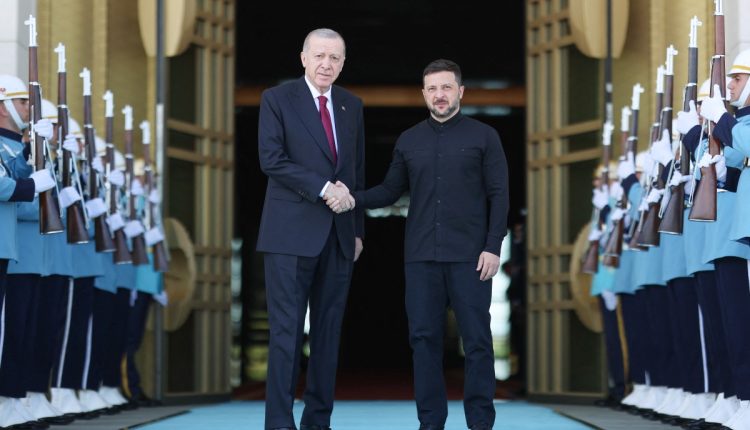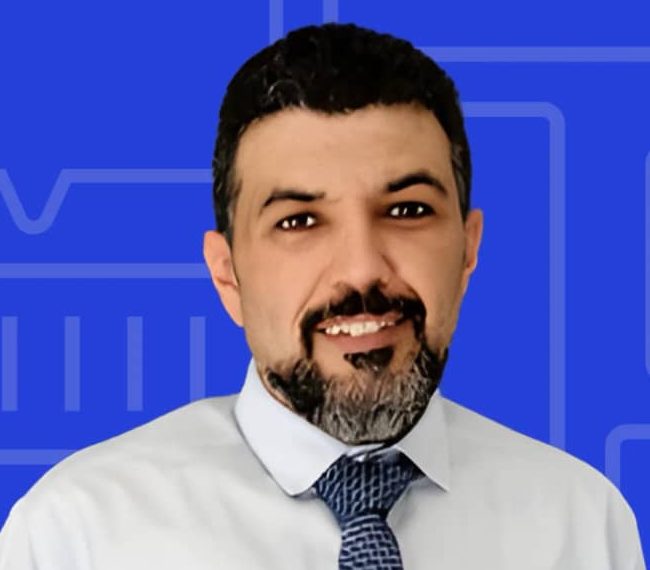The Middle East in an Era of Mediation: Turkey Pursues Major Deals with All Parties
By Sarkis Kassargian
Since the outbreak of the Russian-Ukrainian war, Turkey has sought to position itself as a key diplomatic mediator in one of the most complex crises of this century. This mediation did not happen spontaneously but resulted from Turkey’s long-term positioning between Russia on one side and NATO and the West on the other, which provided Erdoğan with negotiation tools to serve his international objectives.
Dancing on the Tightrope
The international arena has witnessed several moves by Turkey, such as hosting two simultaneous meetings in different cities: one for NATO foreign ministers in Antalya, and another for negotiations between Russian and Ukrainian delegations in Istanbul. This reflects Erdoğan’s desire to present Turkey as a platform for dialogue despite sharp polarization.
The strategic balance between NATO membership and partnership with Moscow has given Erdoğan a diplomatic card to enhance his international legitimacy and achieve bargaining gains with both sides.
Russian President Vladimir Putin’s willingness to choose Istanbul as the location for negotiations, along with Turkey’s reluctance to join Western sanctions against Moscow, reflects Moscow’s confidence in Ankara. In return, Turkey maintains its deep security and military cooperation with Ukraine, including the sale of Bayraktar drones, hosting high-level Ukrainian officials, and facilitating meetings between Western and Russian intelligence agencies on its territory.
Ankara’s mediation of the grain issue—through the Black Sea Corridor—was a pivotal moment that strengthened Erdoğan’s image as the savior of the economies of poor countries dependent on Ukrainian exports. Hosting prisoner exchange talks and nuclear negotiations between Iran and European countries also reflects Turkey’s role as a regional diplomatic hub.
Furthermore, the convergence of Erdoğan’s interests with those of U.S. President Donald Trump has had an additional impact. Both leaders share a pragmatic and populist approach to politics, focused on creating large, surprising deals and breaking through media narratives, even if this comes at the expense of constitutional norms or institutions.
Trump himself—who pledged to end the Ukraine war within 24 hours if he won the election—implicitly endorsed Turkey’s efforts, providing Erdoğan with a political boost among his domestic audience by positioning him as a player trusted by the major powers, including decision-makers in Washington.
Fidan Escalates the Rhetoric: Is Turkey’s Membership a Victim of Religious Identity?
In the same vein, Erdoğan understands that the intense polarization between the West and Russia, coupled with European fears of further escalation, positions Turkey as an “insurmountable mediator.” This role grants him leverage not only in the Ukrainian issue but also in other matters: such as political blackmail regarding the Nordic countries’ accession to NATO, or economic gains from Russia, Qatar, and even China.
Official Turkish statements regarding the European Union outline Ankara’s strategy and its aspirations from a mediating role in the Ukrainian conflict. During a joint press conference with Lavrov, Fidan attributed Turkey’s stalled EU membership negotiations to European identity politics, claiming that the EU is hesitant to accept a Muslim-majority country.
Turkey’s bid to join the EU, initiated in 1999 with negotiations starting in 2005, has been stalled since 2016 due to concerns over democratic backsliding and disputes with Greece and Cyprus.
Today, by bolstering its role in the Russian-Ukrainian peace talks, Turkey aims to pressure the EU into making concessions, such as visa liberalization and expanded customs agreements. It is exploiting growing European concerns about the declining US security presence, with the goal of cementing its position as a major regional player.
This strategy was reflected in Fidan’s recent statement that reducing dependence on the United States would make the EU “more resilient in the face of economic and geopolitical crises.”
Syria in the New Turkish Equation
Besides being part of the Black Sea security system and the main gateway controlling the straits, Turkey is also balancing Russia in other key geographical regions, including the Caucasus, Libya, and the Middle East. It still considers Crimea, Lugansk, and Donetsk to be Ukrainian territory.
The Ankara-backed Hayat Tahrir al-Sham’s (HTS) control of power in Syria has forced Moscow to reassess its strategic positioning in the region, especially amid increasing regional cooperation between Ankara and the United States—regarding the future of the Syrian government, the fate of northeastern Syria, and the presence of US forces in the area.
Preventing Russian dominance in the Black Sea remains a top priority for Ankara, which views a strong Ukraine as a counterbalance to Russian expansionism. This perspective aligns with NATO and European countries—particularly Eastern European nations—who see Ukraine and Turkey as key elements in confronting Russian ambitions. For example, Poland has strongly supported Turkey’s efforts to integrate into European security structures to bolster NATO’s southeastern flank.
Turkey largely controls Russia’s military future in Syria. The continued presence of Russian military bases in Tartus and Hmeimim—beyond the fall of Assad—depends heavily on Turkey’s assessment. Any Turkish decision to pressure the current Syrian government to limit Russia’s activities could threaten Moscow’s ability to maintain these bases.
Erdoğan’s Kurdish Transformations
After the defeat of ISIS in partnership with the international coalition, the Syrian Democratic Forces (SDF) succeeded in securing broad rights and freedoms for Kurds and all components living in areas controlled by the Autonomous Administration. The fall of Bashar al-Assad on December 8 and the rise to power of the jihadist Hay’at Tahrir al-Sham (HTS) prompted other local communities across the country to demand autonomy, amid fears of chaos resulting from the radical factions’ chaos.
Initially, Turkey responded with force to the local, transnational, and international gains of the Kurdish movement. However, it soon realized that the stalled peace negotiations and the territorial gains from cross-border military operations against the Autonomous Administration areas in Syria— which resulted in thousands of deaths and the displacement of hundreds of thousands—had not contributed to solving the core dilemma facing Turkey nor fostered confidence among regional and international actors in Ankara’s ability to fill the power vacuum and bring stability to the region.
These developments have prompted Abdullah Öcalan, the leader of the PKK, to call for a new peace initiative. He is relying on his party’s organizational flexibility and its capacity to adapt tactics—and even ideology—in response to emerging challenges within a continuously evolving strategic landscape.
Öcalan has exploited Erdoğan’s challenges related to Israel and Iran, putting Ankara at risk of clashing with the two regional power blocs. Iran faces the greatest threat as Turkey’s influence expands in Syria, while Israel will not tolerate the presence of Turkish military bases or former al-Qaeda affiliates near its growing occupation zone in southern Syria.
This challenge significantly helps prevent Ankara from escalating its actions against the Kurds in Syria, pushing them to become a party against Turkey rather than ensuring their neutrality in the worst-case scenarios for Turkey.
In Syria, the Syrian Democratic Forces (SDF) control about one-third of the country’s territory. They are the largest disciplined armed force with international legitimacy, operating prisons and camps holding tens of thousands of ISIS affiliates.
A preliminary agreement has been signed between the SDF and Damascus, coinciding with the PKK-Ankara agreement. The SDF now has the capacity to maintain a degree of autonomy in its areas.
Erdoğan is also seeking Kurdish support for his bid in 2028. Moreover, the PKK’s declaration of dissolution helps ease Turkish-American tensions and facilitates Damascus in successfully finalizing the deal with the SDF.
Ankara bets that if the new Syrian government maintains stability and implements the agreement to integrate the SDF into the national army, it will encourage Trump to give the operation a freer hand in Syria. To achieve his domestic and foreign policy objectives, Erdoğan needs a stable Syria governed by a moderate and inclusive administration capable of attracting international funding.
Al-Sharaa Maneuvers in a Regional Minefield
The United States announced that it has reduced its presence in Syria from 2,000 to 900 troops, but it has retained key bases to counter ISIS. Trump has prioritized Gulf trade relations over traditional alliances, disregarding Israel’s concerns. His praise of al-Sharaa as a “true leader with a strong past” reflects a deal-making approach.
Just as with the move to lift sanctions, Trump did not consult his allies in Tel Aviv regarding Syria’s potential inclusion in the Abraham Accords.
Israel remains deeply concerned about the resurgence of al-Sharaa’s jihadist past despite his moderate rhetoric. It is employing various security, military, and diplomatic measures to prevent the emergence of a new Syrian army composed of Turkish-backed Islamists near its borders.
Israeli officials portray the Turkish presence in Syria as both a military and ideological threat. Al-Sharaa recognizes that intense Turkish military intervention could hinder his efforts to build regional relations. Damascus has shown an interest in avoiding confrontation with Israel, and al-Sharaa has made efforts to allay Israeli fears by proposing normalization, a demilitarized zone, and even allowing Israel to maintain a security presence near the Golan Heights.
Similarly, Turkish officials have made it clear that they are not seeking a confrontation with Israel in Syria. While Turkey aims to consolidate its influence in the region, it knows that it can no longer afford the ideological adventurism of the past nor risk a military clash with Israel that could alienate the Gulf and Western powers it relies on to rebuild Syria and stabilize its struggling economy.
In light of the profound shifts occurring in the landscape of regional and international powers, Turkey appears to be striving to enhance its political position amid regional crises and solutions. It is leveraging its geographical location and its ability to exploit contradictions between Moscow and Washington, as well as between the Kurdish internal scene and the broader Syrian context.
However, this Turkish ambition faces a complex minefield that demands a constant balancing act between security and economic objectives, regional roles, and international relations.
At this critical juncture, Erdoğan’s political fate intersects with that of the Middle East, as well as with the limits of what diplomacy can achieve before military adventurism reemerges.




Comments are closed.